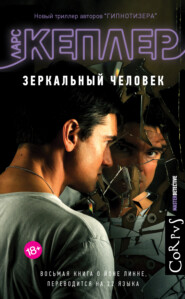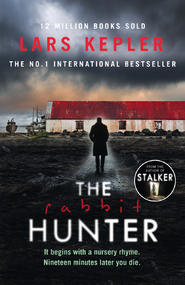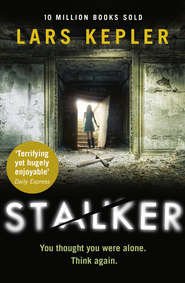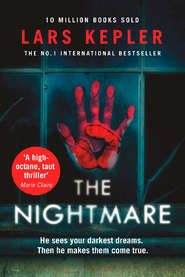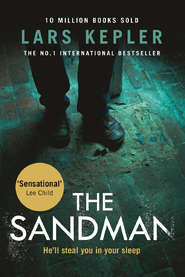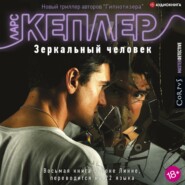По всем вопросам обращайтесь на: info@litportal.ru
(©) 2003-2024.
✖
The Hypnotist
Настройки чтения
Размер шрифта
Высота строк
Поля
In Greek mythology, the god Hypnos is a winged boy with poppy seeds in his hand. His name means sleep. He is the twin brother of Thanatos, death, and the son of night and darkness.
The term hypnosis was first used in its modern sense in 1843 by the Scottish surgeon James Braid. He used this term to describe a sleeplike state of both acute awareness and great receptiveness.
Even today, opinions vary with regard to the usefulness, reliability, and dangers of hypnosis. This lingering ambivalence is presumably owing to the fact that the techniques of hypnosis have been exploited by con men, stage performers, and secret services all over the world.
From a purely technical point of view, it is easy to place a person in a hypnotic state. The difficulty lies in controlling the course of events, guiding the patient, and interpreting and making use of the results. Only through considerable experience and skill is it possible to master deep hypnosis fully. There are only a handful of recognised doctors in the world who have mastered hypnosis.
Like fire, just like fire. Those were the first words the boy uttered under hypnosis. Despite life-threatening injuries—innumerable knife wounds to his face, legs, torso, back, the soles of his feet, the back of his neck, and his head—the boy had been put into a state of deep hypnosis in an attempt to see what had happened with his own eyes.
“I’m trying to blink,” he mumbled. “I go into the kitchen, but it isn’t right; there’s a crackling noise between the chairs and a bright red fire is spreading across the floor.”
They’d thought he was dead when they found him among the other bodies in the terraced house. He’d lost a great deal of blood, gone into a state of shock, and hadn’t regained consciousness until seven hours later. He was the only surviving witness.
Detective Joona Linna was certain that the boy would be able to provide valuable information, possibly even identify the killer.
But if the other circumstances had not been so exceptional, it would never even have occurred to anyone to turn to a hypnotist.
1
tuesday, december 8: early morning
Erik Maria Bark is yanked reluctantly from his dream when the telephone rings. Before he is fully awake, he hears himself say with a smile, “Balloons and streamers.”
His heart is pounding from the sudden awakening. Erik has no idea what he meant by these words. The dream is completely gone, as if he had never had it.
He fumbles to find the ringing phone, creeping out of the bedroom with it and closing the door behind him to avoid waking Simone. A detective named Joona Linna asks if he is sufficiently awake to absorb important information. His thoughts are still tumbling down into the dark empty space after his dream as he listens.
“I’ve heard you’re very skilled in the treatment of acute trauma,” says Linna.
“Yes,” says Erik.
He swallows a painkiller as he listens. The detective explains that he needs to question a fifteen-year-old boy who has witnessed a double murder and been seriously injured himself. During the night he was moved from the neurological unit in Huddinge to the neurosurgical unit at Karolinska University Hospital in Solna.
“What’s his condition?” Erik asks.
The detective rapidly summarises the patient’s status, concluding, “He hasn’t been stabilised. He’s in circulatory shock and unconscious.”
“Who’s the doctor in charge?” asks Erik.
“Daniella Richards.”
“She’s extremely capable. I’m sure she can—”
“She was the one who asked me to call you. She needs your help. It’s urgent.”
When Erik returns to the bedroom to get his clothes, Simone is lying on her back, looking at him with a strange, empty expression. A strip of light from the streetlamp is shining in between the blinds.
“I didn’t mean to wake you,” he says softly.
“Who was that?” she asks.
“Police … a detective … I didn’t catch his name.”
“What’s it about?”
“I have to go to the hospital,” he replies. “They need some help with a boy.”
“What time is it, anyway?” She looks at the alarm clock and closes her eyes. He notices the stripes on her freckled shoulders from the creased sheets.
“Sleep now, Sixan,” he whispers, calling her by her nickname.
Carrying his clothes from the room, Erik dresses quickly in the hall. He catches the flash of a shining blade of steel behind him and turns to see that his son has hung his ice skates on the handle of the front door so he won’t forget them. Despite his hurry, Erik finds the protectors in the closet and slides them over the sharp blades.
It’s three o’clock in the morning when Erik gets into his car. Snow falls slowly from the black sky. There is not a breath of wind, and the heavy flakes settle sleepily on the empty street. He turns the key in the ignition, and the music pours in like a soft wave: Miles Davis, ‘Kind of Blue.’
He drives the short distance through the sleeping city, out of Luntmakargatan, along Sveavägen to Norrtull. He catches a glimpse of the waters of Brunnsviken, a large, dark opening behind the snowfall. He slows as he enters the enormous medical complex, manoeuvring between Astrid Lindgren’s understaffed hospital and maternity unit, past the radiology and psychiatry departments, to park in his usual place outside the neurosurgical unit. There are only a few cars in the visitors’ car park. The glow of the streetlamps is reflected in the windows of the tall buildings, and blackbirds rustle through the branches of the trees in the darkness. Usually you hear the roar of the motorway from here, Erik thinks, but not at this time of night.
He inserts his pass card, keys in the six-digit code, enters the lobby, takes the lift to the fifth floor, and walks down the hall. The blue vinyl floors shine like ice, and the corridor smells of antiseptic. Only now does he become aware of his fatigue, following the sudden surge of adrenaline brought on by the call. It had been such a good sleep, he still felt a pleasant aftertaste.
He thinks over what the detective told him on the telephone: a boy is admitted to the hospital, bleeding from cuts all over his body, sweating; he doesn’t want to lie down, is restless and extremely thirsty. An attempt is made to question him, but his condition rapidly deteriorates. His level of consciousness declines while at the same time his heart begins to race, and Daniella Richards, the doctor in charge, makes the correct decision not to let the police speak to the patient.
Two uniformed policemen are standing outside the door of ward N18; Erik senses a certain unease flit across their faces as he approaches. Maybe they’re just tired, he thinks, as he stops in front of them and identifies himself. They glance at his ID, press a button, and the door swings open with a hum.
Daniella Richards is making notes on a chart when Erik walks in. As he greets her, he notices the tense lines around her mouth, the muted stress in her movements.
“Have some coffee,” she says.
“Do we have time?” asks Erik.
“I’ve got the bleed in the liver under control,” she replies.
A man of about forty-five, dressed in jeans and a black jacket, is thumping the coffee machine. He has tousled blond hair, and his lips are serious, clamped firmly together. Erik thinks maybe this is Daniella’s husband, Magnus. He has never met him; he has only seen a photograph in her office.
“Is that your husband?” he asks, waving his hand in the direction of the man.
“What?” She looks both amused and surprised.
“I thought maybe Magnus had come with you.”
“No,” she says, with a laugh.
“I don’t believe you,” teases Erik, starting to walk toward the man. “I’m going to ask him.”
Daniella’s mobile phone rings and, still laughing, she flips it open, saying, “Stop it, Erik,” before answering, “Daniella Richards.” She listens but hears nothing. “Hello?” She waits a few seconds, then shrugs. “Aloha!” she says ironically and flips the phone shut.
Erik has walked over to the blond man. The coffee machine is whirring and hissing. “Have some coffee,” says the man, trying to hand Erik a mug.
“No, thanks.”






